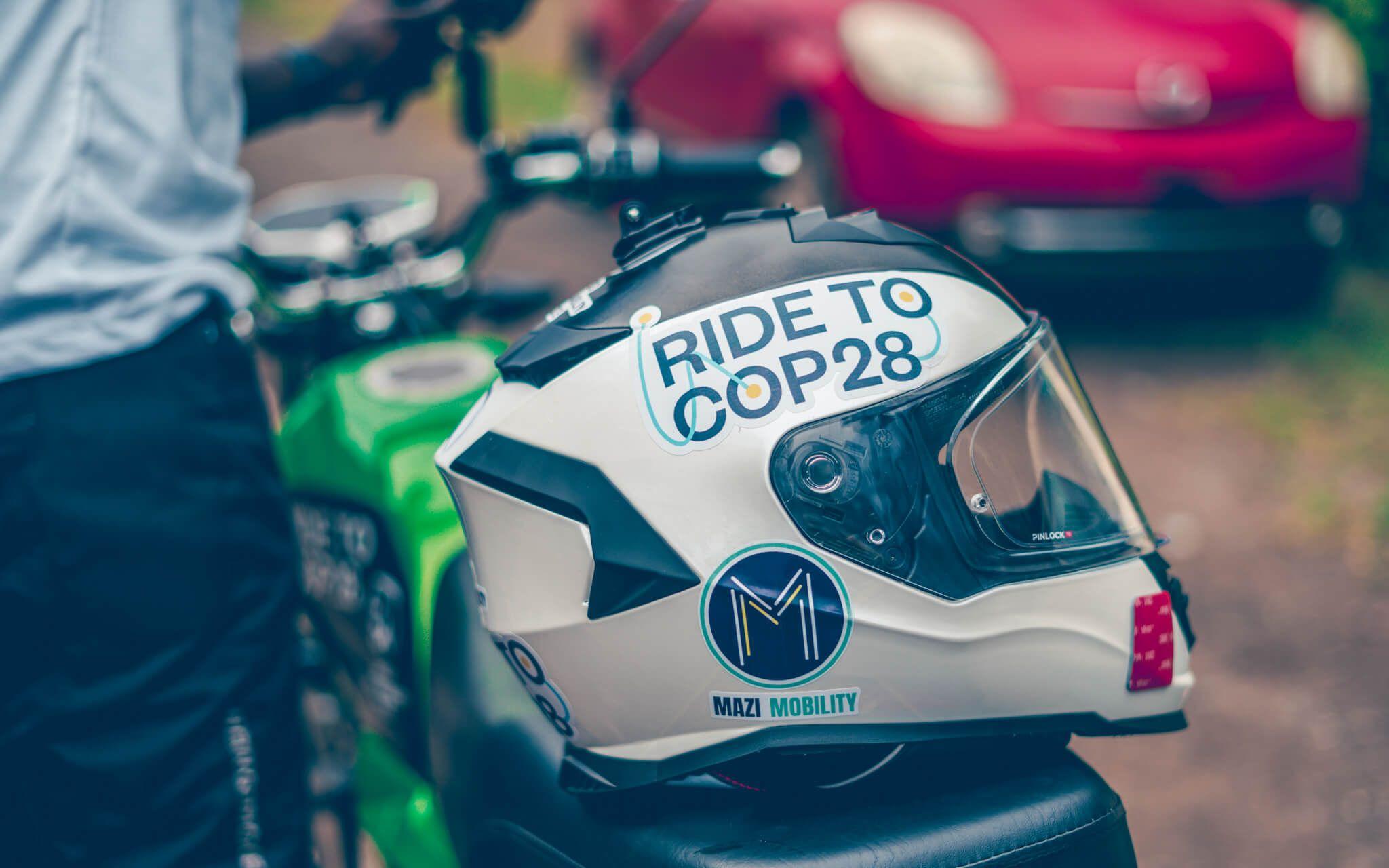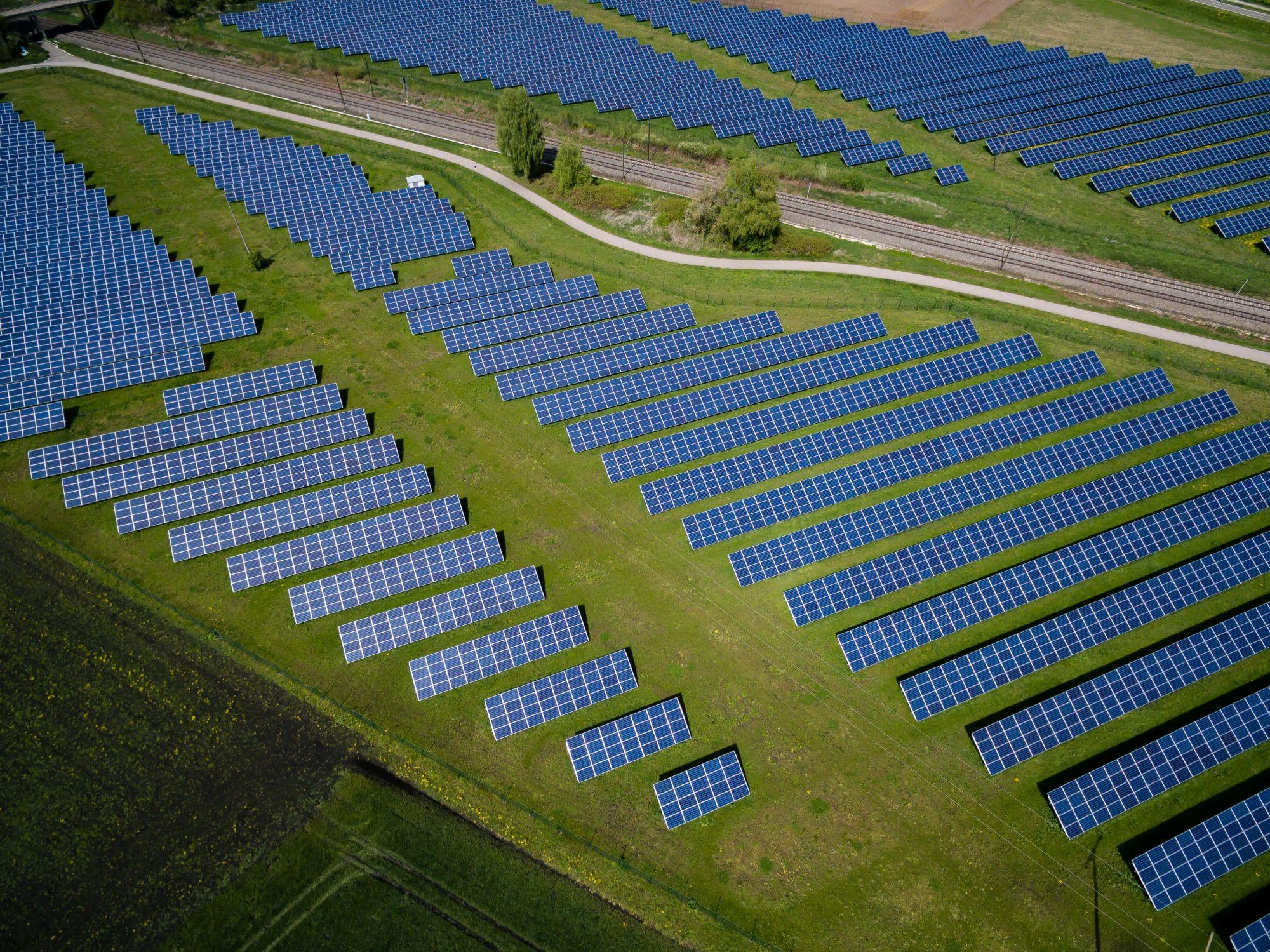The No-Pressure Buffet
In a world where food is deeply intertwined with identity, Sara Merhi and Carly Dubery are transforming how the MENA region eats. With Sara's focus on sustainable food systems and Carly's passion for plant-based living, these two changemakers are shaking things up in their communities.
For most of us, our daily dining choices are a matter of cultural identity, habit and convenience. We fill our plates with familiar favourites, unaware of the impact our food choices have on the world around us.
From farm to fork to landfill, our eating habits cause unfathomable damage. Global food systems account for over a third of all greenhouse gas emissions - more than transportation and industry combined. Yet, one-third of all food produced globally goes to waste.
With the world's population projected to hit 10 billion by 2050, the question of how we'll feed ourselves sustainably has never been more pressing.
"I hope that our food system transitions from a linear to a circular system," Sara Merhi says, a nutritionist and sustainable food advocate. "A lot of what we produce is wasted or lost.”
Adapting relationships with food is a complex and daunting process; cultural heritage, food access and privilege, as well as the potential for guilt and shame often surround discussions of what and how we eat. Everyone who has ever scrolled through a social media platform has witnessed the sheer incendiary outrage over other people’s food choices.
It feels exhausting.
Enter Sara Merhi and Carly Dubery, two Dubai-based food advocates eager to share solutions and save the world, one plate at a time. Both women come armed with facts, compassion, and a burning desire to transform our diets. While their approaches may differ, they remind us that a more sustainable future is possible - and it starts with what we put on our plates.


Sara's Sustainable Food Awakening
Originally from Lebanon and now settled in Dubai, Sara never planned to become a food revolutionary. With a degree in nutrition and dietetics, she pictured herself taking the more traditional path of working with patients in hospitals and clinics. But an eye-opening internship flipped the script, sending her on a totally new adventure.
As she dove into research, the uncomfortable reality of our food crisis became impossible to ignore. "People don't think that food affects the environment when it really does," she emphasises.
"From production to consumption, at different stages within the food supply chain, our food emits a lot of greenhouse gases."
Confronted with this knowledge, Sara knew she had to act, quickly realising that top-down change would only go so far - to overhaul our food culture, she needed to bring everyone to the table.
"We all need to ask ourselves important questions,” Sara stresses. "Why should we buy local? How can we minimise food waste? What type of behaviour should we have towards food?"
"We need to raise awareness about food choices and options," she says. "But we have to do it without making people feel guilty or ashamed."
For Sara, interrogating dietary habits requires integrating discussions surrounding food security and nutrition. “Within the region, we see a juxtaposition of overconsumption and underconsumption. Even leftovers! Are they going to waste or being used?” She wonders.
Carly’s Compassionate Approach to Veganism
Meanwhile, across town, Carly Dubery engages with customers and communities through Not Just for Vegans: an online store launched to create a judgment-free zone for the veg-curious. "The whole idea is that we want to create an environment where people could be curious about adopting a vegan lifestyle,” Carly explains.
Originally from the UK, Carly’s path to plant-based living was a personal revelation. But she knows that not everyone will have the same "aha" moment. In a city known for its love of luxury and indulgence, she's on a mission to make veganism accessible and appealing to all.
"It’s a rabbit hole,” she says. “As soon as you start going down that road, you can't unlearn it, especially once you know the impact, you can't go backwards, or at least not without having a very guilty conscience, I guess,” Carly says, admitting the struggles that so many of us feel when evaluating our food choices.
Through Not Just For Vegans, Carly sees an opportunity to show that plant-based living can be fabulous and fun. She hosts lively events like vegan-friendly markets and festivals that attract scores of non-vegans with their inviting, pressure-free atmosphere.
We've all got to live here. Everyone has a role to play.
Digging for the Future
Nowadays, to drive awareness and action, Sara focuses on education initiatives across different age groups. She works with schools to incorporate sustainability lessons into the curriculum, knowing the power of early intervention. "If you're having these conversations at school, children will likely go home and continue them with their families," she explains. "It translates into household-level change."
Sara also champions hands-on learning experiences, like composting and planting workshops, to help youth forge tangible connections to their food. "When it comes to youth, I think composting workshops or planting workshops would work best," Sara suggests.
But catalysing this shift is no easy feat. "The major challenge would be for the consumers to move in this direction," Sara admits. “Consumer behavioural shifts would eventually lead to more sustainable options."
“Wherever you are in life to have that drastic change, kind of like ripping the Band-Aid off, it doesn’t really work,” she explains. Many people cook based on recipes and techniques handed down through their families - entire generations of tradition poured into the stovetop.
Real change takes time.


Finding a Way Forward
“I was always scared to have certain conversations about being vegan because I'm not confrontational; I don't want to make people uncomfortable,” Carly shares, voicing a familiar concern that many climate advocates share.
But in finding her way through veganism, with the help of her community, Carly has brought necessary conversations into the Dubai food scene.
"Our biggest achievement is how many non-vegans go to our events and are on our database,” Carly shares proudly. “That’s what we're trying to do - highlight these amazing, beautiful local businesses that have products that are sustainable and cruelty-free."
Her approach is clearly striking a chord in a region where plant-based living is still relatively uncommon. " I think sustainability is people’s core reason for change," she notes. “People are a lot more conscious about what they're purchasing these days."
These days, Carly's calendar is packed with vegan-friendly networking events, entrepreneur workshops, and markets, a testament to the power of connection to spark change.
She's also working on a project with Greener Food, a non-profit providing free resources to help hospitality, education, corporate, and healthcare sectors to offer more sustainable food options. By making it easier for businesses to embrace plant-based options, Carly hopes to create a ripple effect of positive change.
No Pressure, Just Progress
Let’s face it, our food choices are personal – they’re shaped by culture, tradition, religion, and identity. They’re deeply rooted in nostalgia and our communities.
The language surrounding food is particularly fraught: clean eating, toxic foods, detox, fitspo; trying to navigate a healthy diet alongside the pressures of busy schedules and sustainability leaves many of us feeling powerless.
And there’s always conflicting reports; new studies with dire warnings, research showing plant-based diets are more environmentally friendly, while others push for higher meat consumption.
For many of us, what we eat becomes entangled with our sense of worth; disentangling ourselves from the constant barrage of mixed messages is overwhelming.
Enter Sara and Carly’s gentle, come-as-you-are approach.
For Sara and Carly, they’re all about meeting people where they are. "We need to educate and talk about our food choices, but without judgment," Sara affirms. "Small changes snowball. Meatless Mondays are great - what if the other days of the week were meatless too?"
Carly concurs. "I try not to talk too much at people. I encourage them to do the research," Carly shares. "I can tell you why I do something, but you should really look into things yourself."
We need to educate and talk about our food choices but without judgment.
Turning the Tables
Sara and Carly can’t transform our food landscape alone – they need us all to join the revolution. So, how can we all get involved? True to form, Sara and Carly dish out a buffet of options for every appetite.
"Go to the kitchen, try something new." Sara encourages. "Learn about food preservation. Reduce your portions and food waste."
"If you care about the planet, just start taking action," Carly exhorts. "Make more sustainably conscious consumer choices. Eat less meat and dairy. It's that simple!"
To really contribute to transforming current food systems, they encourage thoughtful exploration, discovering how eco-friendly food choices can slot into daily life.
"Read about sustainable food systems. Watch documentaries,” Sara advises. “Check out what international organisations are doing. See if you can volunteer or even just be part of their advocacy.”
The Future is on Our Plates
In a world of culinary complexity, the reality of the food crisis can feel oppressive.
“There's not enough action being put into place on the bigger subjects that I have no control over. I can control what I consume, but I can't control those bigger things that are going on, the deforestation of the Amazon, which is down to farming. You think, ‘OK, I'm reducing demand by being vegan.’” She sighs, “It's evolving quickly. But when you think about it, it's not happening quickly enough. I don't know; I'm contradicting myself. I'm very aware of that.”
Luckily, Sara and Carly remind us that we all have the power to reshape our food culture.
Every choice we make, and every bite we take contributes to a more compassionate and sustainable future. As Carly puts it, "We've all got to live here. Everyone has a role to play."
The power to transform our plates and our planet lies in each of our hands. The invitation is open - will you join the revolution?
Most Popular
The Climate Tribe delivers stories about Biodiversity and Conservation, Circular Economy, Food and Water , and how they intersect with climate.
Subscribe
Get the latest stories inspiring climate action around the globe straight to your inbox.





